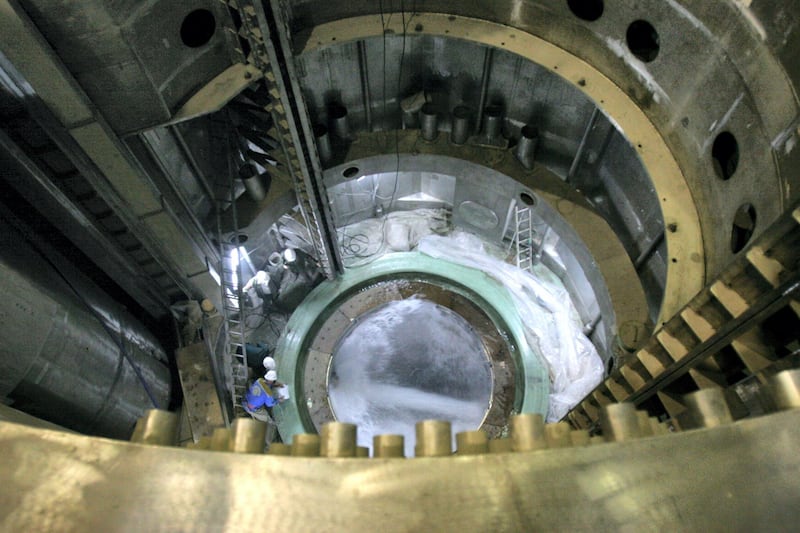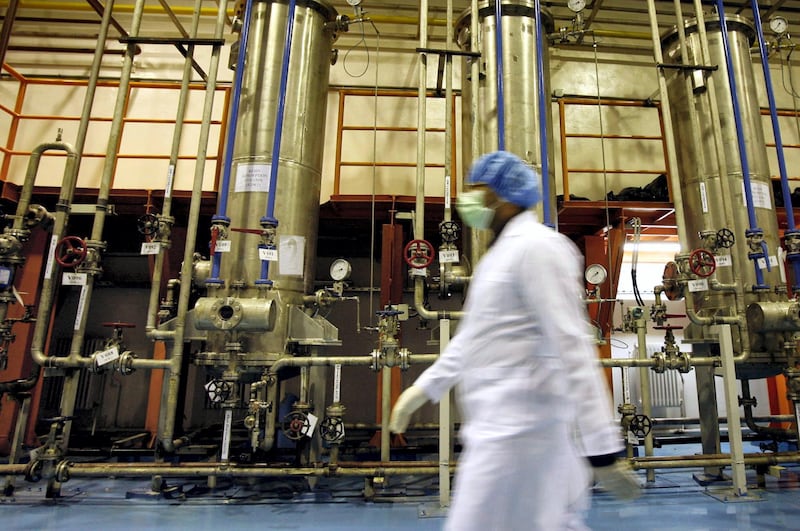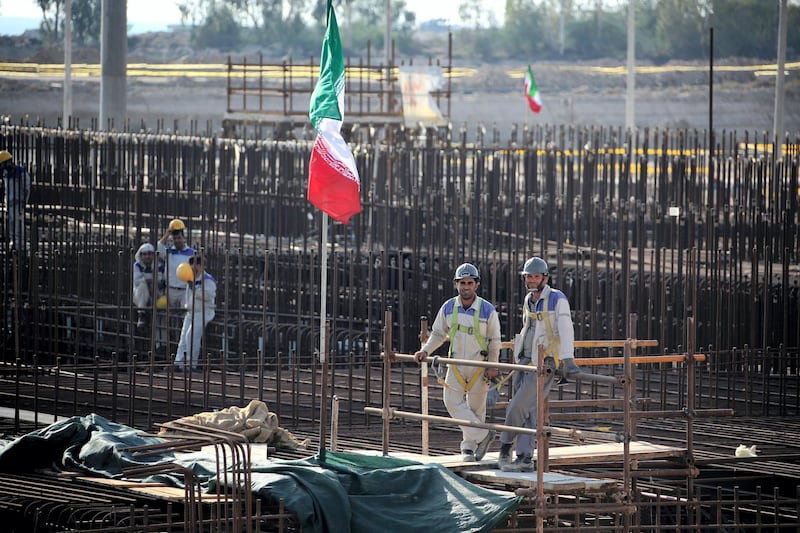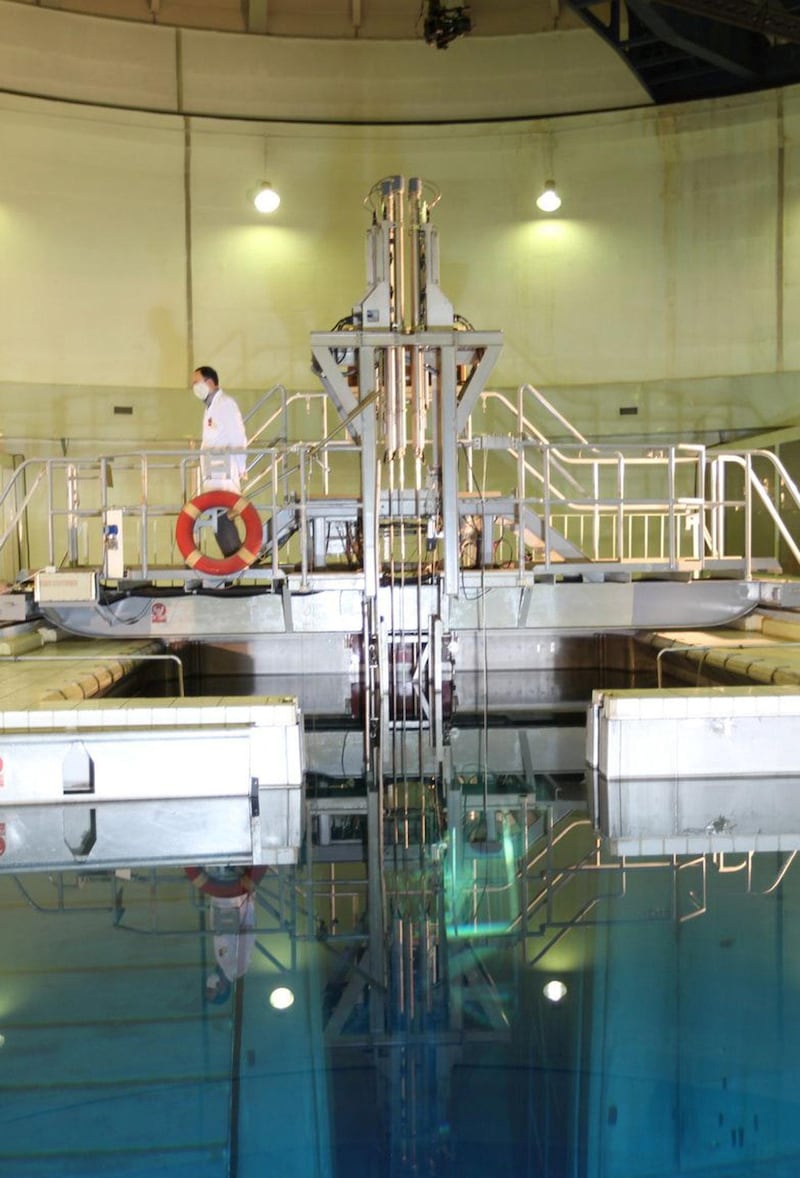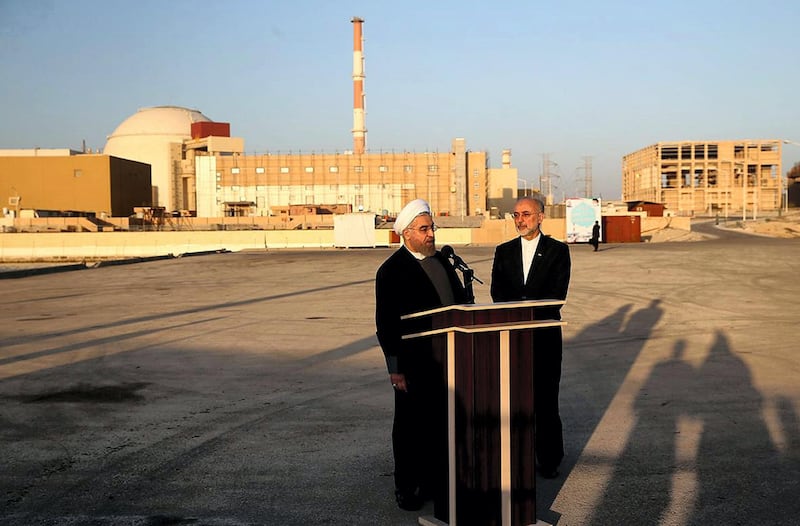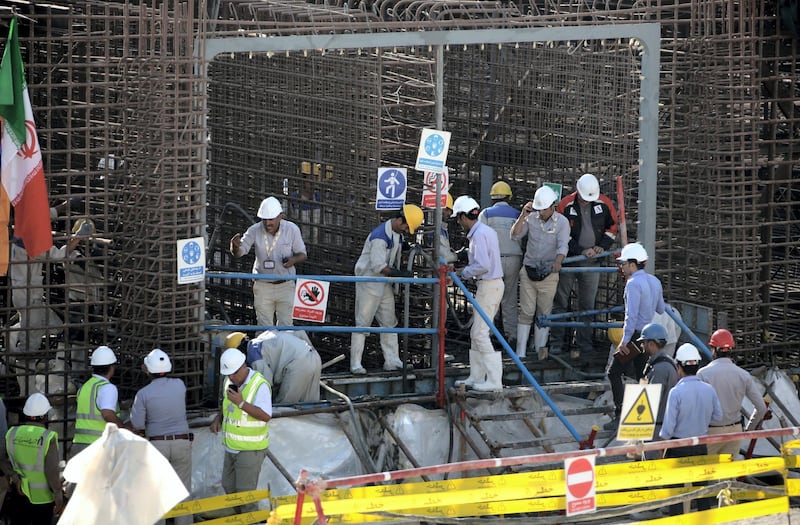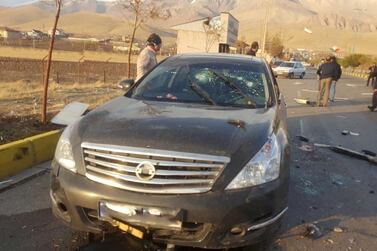A bill requiring Iran's government to increase uranium enrichment closer to the level needed for a nuclear weapon cleared its first hurdle in Parliament on Tuesday.
The proposed law could also deport UN inspectors from the country.
Inspections by international monitors would be restricted if US oil and banking sanctions were not lifted within three months of the bill’s approval.
The proposal still requires final approval by Parliament and the Guardian Council that vets laws.
But the government said the move, proposed in response to the assassination of a top nuclear scientist on Friday, could not change Iran's nuclear policy, which falls under authority of the Supreme National Security Council.
"Death to America. Death to Israel," some legislators chanted after the hardline-dominated Parliament cleared the draft at its first reading in a session broadcast live on state radio.
Parliament has often demanded a hardening of Iran's position on the nuclear issue in recent years, without much success.
Funeral of the assassinated Iranian scientist linked to nuclear program

The government must now decide whether a sharp response to Friday's killing of nuclear scientist Mohsen Fakhrizadeh might jeopardise the chance of an improvement in ties with the US when Joe Biden takes over from Donald Trump as president.
"The government believes that, under the constitution, the nuclear accord and the nuclear programme are under the jurisdiction of the Supreme National Security Council," government spokesman Ali Rabiei told state media.
"Parliament cannot deal with this by itself."
The draft legislation would also revive the core of a contentious nuclear reactor and enrich Iran’s stockpile of uranium to 20 per cent, which could then be purified to weapons grade at short notice.
That reactor could be brought online within two months, state-run Irib News quoted Behrouz Kamalvandi, a spokesman for the Atomic Energy Organisation of Iran, as saying on Tuesday.
The maximum fissile purity to which Iran has enriched uranium has remained around 4.5 per cent, above the 3.67 per cent cap agreed to in the 2015 nuclear deal with world powers but below the 20 per cent Iran had achieved before.
A senior Iranian official said on Monday that Tehran suspected a foreign-based opposition group of complicity with Israel in the killing of Fakhrizadeh, who western powers regard as the architect of an Iranian nuclear weapons programme. The group rejected the accusation.
Israeli Prime Minister Benjamin Netanyahu's office has declined to comment on the killing.
Israeli Cabinet minister Tzachi Hanegbi said on Saturday that he did not know who had carried it out.
Mr Biden has said he will return the US to the 2015 nuclear deal if Iran resumed compliance.
Tehran has always denied pursuing nuclear weapons.
